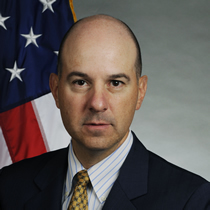Related Research Articles

Intellectual property (IP) is a category of property that includes intangible creations of the human intellect. There are many types of intellectual property, and some countries recognize more than others. The best-known types are patents, copyrights, trademarks, and trade secrets. The modern concept of intellectual property developed in England in the 17th and 18th centuries. The term "intellectual property" began to be used in the 19th century, though it was not until the late 20th century that intellectual property became commonplace in most of the world's legal systems.

A patent is a type of intellectual property that gives its owner the legal right to exclude others from making, using, or selling an invention for a limited period of time in exchange for publishing an enabling disclosure of the invention. In most countries, patent rights fall under private law and the patent holder must sue someone infringing the patent in order to enforce their rights.

The World Intellectual Property Organization is one of the 15 specialized agencies of the United Nations (UN). Pursuant to the 1967 Convention Establishing the World Intellectual Property Organization, WIPO was created to promote and protect intellectual property (IP) across the world by cooperating with countries as well as international organizations. It began operations on 26 April 1970 when the convention entered into force. The current Director General is Singaporean Daren Tang, former head of the Intellectual Property Office of Singapore, who began his term on 1 October 2020.

The United States Patent and Trademark Office (USPTO) is an agency in the U.S. Department of Commerce that serves as the national patent office and trademark registration authority for the United States. The USPTO's headquarters are in Alexandria, Virginia, after a 2005 move from the Crystal City area of neighboring Arlington, Virginia.
A patent attorney is an attorney who has the specialized qualifications necessary for representing clients in obtaining patents and acting in all matters and procedures relating to patent law and practice, such as filing patent applications and oppositions to granted patents.

The Intellectual Property Office of the United Kingdom is, since 2 April 2007, the operating name of The Patent Office. It is the official government body responsible for intellectual property rights in the UK and is an executive agency of the Department for Science, Innovation and Technology (DSIT).

The Under Secretary of Commerce for Intellectual Property, or USC(IP), is a senior official in the United States Department of Commerce and the principal advisor to the United States Secretary of Commerce on the intellectual property matters. In tandem, the Under Secretary is also the Director of the United States Patent and Trademark Office within the Commerce Department, filling dual roles.

Jonathan Ward "Jon" Dudas is the senior vice president, senior associate to the president and secretary of the University of Arizona. He previously served as Under Secretary of Commerce for Intellectual Property and Director of the United States Patent and Trademark Office (USPTO) until January 18, 2009. He was nominated to the position by former President George W. Bush in March 2004 and appointed in July 2004. Dudas previously served as acting Under Secretary and Director, and Deputy Under Secretary and Deputy Director from 2002 to 2004. He is also a member of the board of directors of Conversant Intellectual Property Management.
Scams in intellectual property include scams in which inventors and other rights holders are lured to pay money for an apparently official registration of their intellectual property, or for professional development and promotion of their ideas, but do not receive the expected services.

The African Regional Intellectual Property Organization (ARIPO), formerly African Regional Industrial Property Organization, is an intergovernmental organization for cooperation among African states in patent and other intellectual property matters. ARIPO was established by the Lusaka Agreement of 1976. It has the capacity to hear applications for patents and registered trademarks in its member states who are parties to the Harare (patents), Banjul (marks) and Arusha protocols. ARIPO also features a protocol on the protection of traditional knowledge, the Swakopmund Protocol, signed in 2010 by 9 member states of the organization which entered into force on May 11, 2015, and was amended on December 6, 2016.
Intellectual property organizations are organizations that are focused on copyrights, trademarks, patents, or other intellectual property law concepts. This includes international intergovernmental organizations that foster governmental cooperation in the area of copyrights, trademarks and patents, as well as non-governmental, non-profit organizations, lobbying organizations, think tanks, notable committees, and professional associations.

The public domain (PD) consists of all the creative work to which no exclusive intellectual property rights apply. Those rights may have expired, been forfeited, expressly waived, or may be inapplicable. Because no one holds the exclusive rights, anyone can legally use or reference those works without permission.
Q. Todd Dickinson was an Under Secretary of Commerce for Intellectual Property and director of the United States Patent and Trademark Office (USPTO). He was an executive director of the American Intellectual Property Law Association (AIPLA), and had been mentioned by some sources for possible reappointment to his former post as director of the USPTO by the Barack Obama administration prior to the appointment of David Kappos to that post.

David "Dave" J. Kappos is an attorney and former government official who served as Under Secretary of Commerce for Intellectual Property and Director of the United States Patent and Trademark Office (USPTO) from 2009 to 2013. Kappos is currently a partner at New York law firm Cravath, Swaine & Moore.

Iran is a member of the WIPO since 2001 and has acceded to several WIPO intellectual property treaties. Iran joined the Convention for the Protection of Industrial Property in 1959. In December 2003 Iran became a party to the Madrid Agreement and the Madrid Protocol for the International Registration of Marks. In 2005 Iran joined the Lisbon Agreement for the Protection of Appellations of Origin and their International Registration, which ensures the protection of geographical names associated with products. As at February 2008 Iran had yet to accede to The Hague Agreement for the Protection of Industrial Designs.
Ian Ballon is an American Internet and intellectual property litigator, author of books on Internet law and executive director of Stanford University Law School's Center for E-Commerce. He is the author of the 4-volume legal treatise, E-Commerce and Internet Law: Treatise with Forms 2d edition, the leading legal reference book on Internet law, which was first published in 2000. A second edition was published in 2008 and is updated annually. He is also an intellectual property litigator with Greenberg Traurig LLP, a firm of approximately 1800 lawyers.
The Japan Patent Attorneys Association (JPAA), headquartered in Tokyo, Japan, is the only one national, professional bar association of Japanese patent attorneys (Benrishi) with approximately 10,000 members.

Michelle Kwok Lee, born 1965 in Santa Clara, California, was vice president of Amazon Web Services and a former Under Secretary of Commerce for Intellectual Property and Director of the United States Patent and Trademark Office (USPTO).

The New York Intellectual Property Law Association, also known as NYIPLA, is a professional association composed primarily of experienced lawyers interested in intellectual property law. NYIPLA has a membership base of more than 1,500 intellectual property attorneys, practicing throughout the United States and abroad.
References
- ↑ AIPLA Past Actions Manual, 1982-1999, page 11
- ↑ Archived 2012-06-22 at the Wayback Machine ; Retrieved 7.18.12
- ↑ "Former USPTO Director Named Executive Director of AIPLA." Archived 2011-02-11 at the Wayback Machine ; IP Frontline.
- ↑ Archived 2014-07-24 at the Wayback Machine "AIPLA Announces Leadership Update"
- ↑ Archived 2015-09-12 at the Wayback Machine "Lisa K. Jorgenson to join AIPLA as Executive Director"
- ↑ Archived 2012-07-09 at the Wayback Machine ; Retrieved 7.18.12